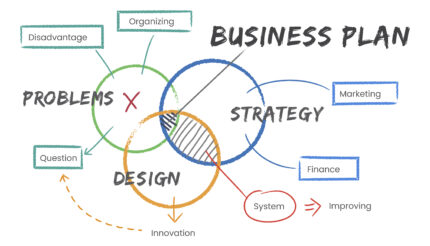What Profit Means to a Business Owner
The lifeblood of any business is profit. As a business coach, I understand that maximising it is a crucial goal for entrepreneurs. However, it is more than just a financial metric. It encompasses a myriad of factors that can shape the success and sustainability of your business. In this article, we will explore what profit means for a business owner and how you can harness its power to propel your venture forward.
What profit means, in its simplest form, is the positive difference between your revenue and expenses. It is the reward for your hard work, innovation, and the value you deliver to your customers. It serves as a gauge of your business’s financial health and viability. It enables you to reinvest in growth, expand your operations, and create opportunities for both yourself and your employees.
Strategic decision making
Profit is not a happy accident; it is the result of strategic decision-making. As a business owner, you must constantly evaluate and fine-tune your operations to ensure that your revenue consistently surpasses your expenses. This entails analysing market trends, identifying cost-saving measures, optimising pricing strategies, and continuously improving your products or services. Profitability-driven decision-making empowers you to allocate resources wisely and drive sustainable growth.
Long term sustainability
While short-term profitability is important, a successful business owner understands the significance of long-term sustainability. Profit acts as a buffer against unforeseen challenges and allows you to weather economic downturns or industry disruptions. By prioritising it, you build a resilient foundation that enables your business to thrive even in turbulent times. It provides you with the flexibility to invest in innovation, research, and development, ensuring that your business remains competitive and adaptable to changing market demands.
Invest in infrastructure
With healthy profit margins, you have the ability to invest in infrastructure, technology upgrades, and talent acquisition. You can expand your product or service offerings, enter new markets, or establish strategic partnerships that propel your business forward. It not only fuels your own ambitions but also attracts potential investors who see the potential for returns on their investment.
Attract and retain top talent
The ability to attract and retain top talent is directly impacted by your profitability. When your business is profitable, you can offer competitive salaries, benefits, and opportunities for professional development. A financially stable business fosters a positive work environment, enhances employee morale, and increases job satisfaction. This, in turn, leads to improved productivity, better customer service, and reduced turnover, ultimately contributing to your bottom line.
Social responsibility
Being Profitable affords you the opportunity to give back to society and fulfill your social responsibilities. As a business owner, you can support charitable causes, sponsor community events, or implement sustainability initiatives that benefit both your local community and the environment. By incorporating social responsibility into your business practices, you not only make a positive impact but also enhance your brand reputation and attract socially conscious customers.
What Profit Means for the Business
The Power of Profit: Unleashing Business Success
I have witnessed first hand the transformative impact that profit can have on a business. It is the ultimate validation of your entrepreneurial efforts and serves as a vital metric for gauging the health and success of your business. We will delve into what it means for your business and how you can leverage its power to drive growth, innovation, and long-term sustainability.
The ultimate indicator
As a measure of success, profit is the ultimate indicator in the business world. It represents the surplus generated when your business revenues exceed your expenses. It signifies that your products or services are valued by customers and that your business model is effective. It demonstrates your ability to deliver value, meet customer needs, and out perform your competitors. It is a testament to your hard work, strategic decision-making, and entrepreneurial spirit.
Business fuel
Profits provide you with the fuel necessary to propel your business forward. They serve as the financial foundation for growth and expansion. With a healthy profit margin, you have the resources to invest in research and development, new product lines, marketing campaigns, and talent acquisition. It empowers you to seize opportunities, penetrate new markets, and solidify your competitive advantage. It fuels innovation and allows you to stay ahead of industry trends.
Provides business stability and resilience
A profitable business enjoys financial stability and resilience. Profit acts as a cushion during challenging times, allowing you to navigate economic downturns, industry disruptions, or unexpected expenses. By building a financial buffer, you can weather storms and emerge stronger on the other side. It enhances your business’s ability to adapt, pivot, and sustain long-term success. It ensures that your business remains viable and resilient in a dynamic marketplace.
Allows you to reward
You have the ability to reward your stakeholders when you are profitable, including employees, shareholders, and investors. It allows you to offer competitive compensation, benefits, and incentives to attract and retain top talent.It also provides opportunities for shareholders and investors to realise returns on their investments. Sharing the fruits of your business’s success creates a sense of loyalty, motivation, and alignment among your stakeholders, fostering a positive organisational culture.
Empowers you to reinvest
Profit is a catalyst for innovation and continuous improvement. It empowers you to reinvest in your business, allocating resources towards research and development, technology upgrades, and process optimisation. By investing in innovation, you can stay ahead of the curve, differentiate yourself from competitors, and meet evolving customer demands. It creates a virtuous cycle of growth and innovation, driving your business forward and enabling it to remain at the forefront of your industry.
Supports giving back
Being profitable also opens doors for you to make a positive impact on society and give back to your community. As a socially responsible business, you can allocate resources towards corporate social responsibility initiatives, charitable donations, or sustainability programs. By integrating social impact into your business model, you contribute to the greater good, enhance your brand reputation, and attract socially conscious customers. It enables you to be a force for positive change in the world.
What Profit Means for your Team
The Significance of Profit for Your Team’s Success
I understand that the success of your team is essential for the overall growth and prosperity of your business. Profit plays a crucial role in shaping the dynamics and motivation within your team. We will explore what it means for your team and how it can empower them to achieve greatness, drive collaboration, and foster a thriving work environment.
Provides security
The financial stability that comes with profitability, provides your team with a sense of security. A profitable business can offer competitive compensation packages, attractive benefits, and opportunities for career growth. When your team members feel financially secure, they can focus more on their work and contribute their skills and expertise with confidence. Allowing you to invest in your team’s well-being, ensuring their needs are met and enhancing their overall satisfaction.
Creates opportunity for recognition and rewards
When it comes to recognition and rewards, profitability creates opportunities for this, which can motivate your team to excel. As your business thrives, you can implement performance-based incentives, bonuses, or profit-sharing programs. Acknowledging and rewarding their hard work not only boosts morale but also encourages a culture of high performance and dedication. It also enables you to celebrate your team’s achievements, reinforcing their value and inspiring them to continue delivering exceptional results.
Investment in the team
A profitable business has the means to invest in the professional growth and development of its team members. It also allows you to allocate resources for training programs, workshops, and skill-building initiatives. By providing opportunities for continuous learning and development, you empower your team to expand their capabilities, stay ahead of industry trends, and contribute to the business’s ongoing success. Investing in your team’s growth cultivates a culture of learning and fosters loyalty and commitment.
Team building
Profitability fosters a collaborative work environment where team members can thrive. When your business is profitable, you can allocate resources for team-building activities, collaborative projects, and cross-functional initiatives. A financially stable business can invest in communication tools, technology, and infrastructure that facilitate effective collaboration and teamwork. This nurtures a sense of unity and shared purpose among team members, enhancing their ability to work together harmoniously and achieve collective goals.
Stability and confidence
Team members job security is far more likely when the business is in profit, instilling a sense of stability and confidence. A profitable business is more likely to weather economic downturns, allowing you to retain talent during challenging times. Furthermore, it opens up opportunities for career advancement and growth within the organisation. As your business expands, new roles and responsibilities emerge, providing your team members with the chance to take on more significant challenges, develop new skills, and advance their careers.
Work-life balance
Work-life balance and employee well-being can be proritised when your company is profitable. You can invest in initiatives that promote work-life integration, such as flexible schedules, remote work options, or wellness programs. By prioritising your team’s well-being, you create an environment that values their personal lives and supports their overall happiness. Profitability empowers you to build a team culture that fosters a healthy work-life balance, reducing stress and enhancing job satisfaction.
Conclusion:
You must recognise that profit is more than just a number on a financial statement; it is the engine that drives your business forward. Understanding what it means for a business owner empowers you to make strategic decisions, ensure long-term sustainability, invest in growth, motivate your employees, and give back to society. It is the lifeblood of your business, representing success, growth, and resilience.
It fuels your entrepreneurial journey, enabling you to invest in growth, reward stakeholders, drive innovation, and make a positive impact. It is also not solely about financial gains; it holds immense value for your team’s success and satisfaction. Profitability provides financial stability, recognition, and growth opportunities. It fosters collaboration, job security, and work-life balance.
As a business coach, I encourage you to recognise the significance of profit for your team’s well-being and leverage its power to create a positive and thriving work environment. By nurturing your team’s success, you will not only enhance their individual performances but also unlock their collective potential, driving your business to new heights of success.





